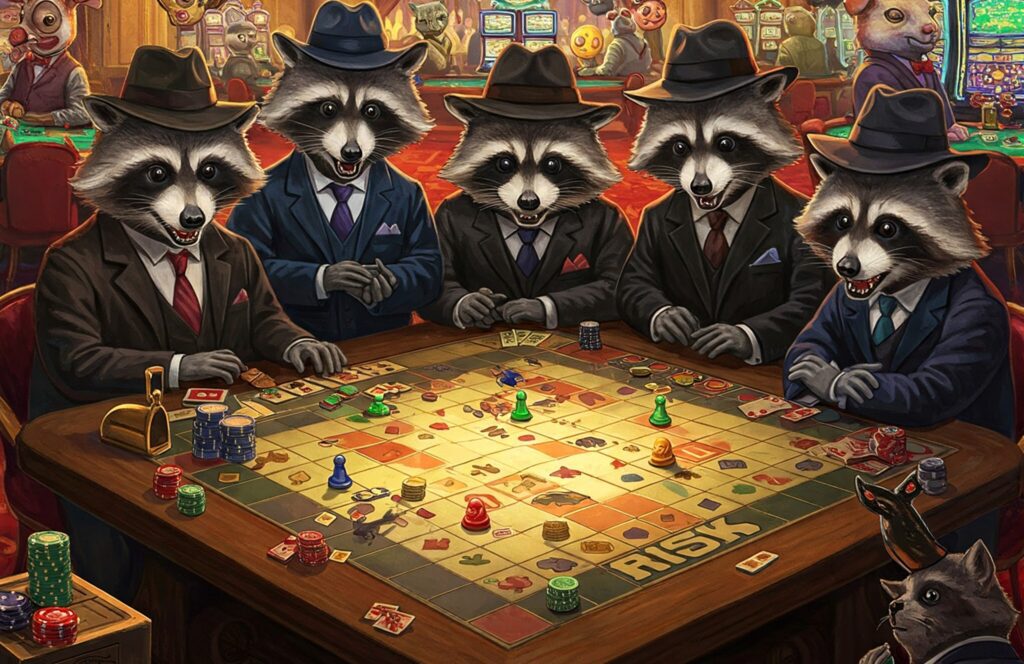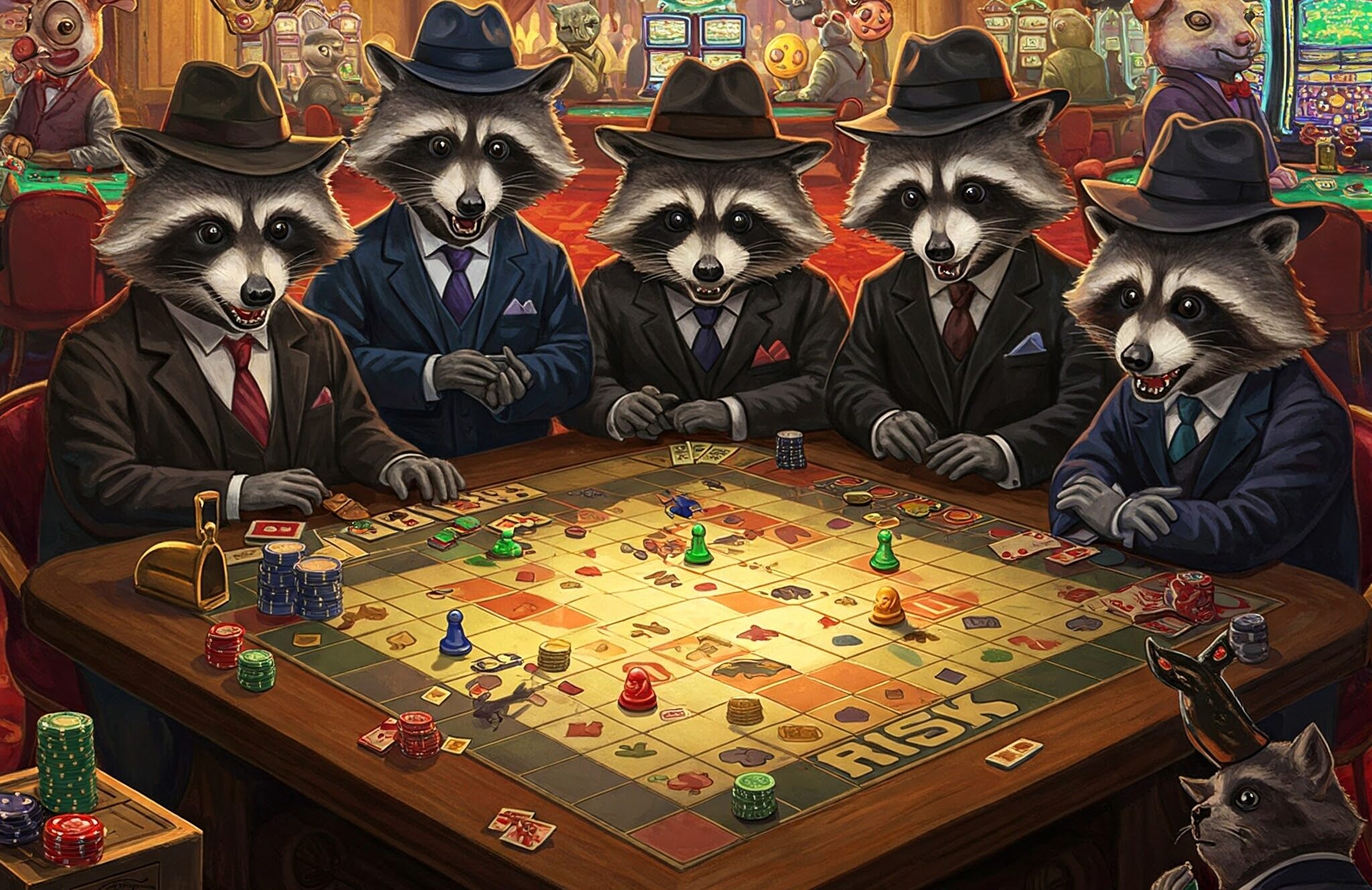
 Studying how risk is navigated can provide useful information on personal and organizational decisions. This essay aims to discuss how risk plays a role in decision-making using the examples of board games and business and how dealing with risk is necessary to succeed.
Studying how risk is navigated can provide useful information on personal and organizational decisions. This essay aims to discuss how risk plays a role in decision-making using the examples of board games and business and how dealing with risk is necessary to succeed.
The Concept of Risk in Decision-Making
Risk is the possibility of a given uncertain outcome being positive or negative. Risk is commonly seen as an impediment to successful decision-making that could be accompanied by either a positive or negative result (failure). Risk is a bet on the balance between potential gains and losses, and hence is information about the possibilities of failure or success, which must be considered before making a decision and in combination with other relevant risks. In games, players think about the probability of winning or losing; in business, the probabilities of market uncertainties and competition and the potential for growth or decline do the same thing.
Given a board game, I describe a simple stochastic model for measuring risk in the game.
For instance, in many board games, board games are, like, microcosms of real-world decision-making scenarios. In Monopoly or Risk, players must constantly consider the outcomes of taking risks versus being safe. Typically, those games contain risk through dice rolls, card draws, or randomness in general. These are the elements that illustrate the bearing that uncertainty has on decision-making. For example, in a board game, a player may choose to buy a property or make a bold gamble, which may, for example, lead to victory but would also carry the risk of failure.
Risk-Taking and Reward: The Psychology Behind It
Psychological factors like personality characteristics, experience, and emotional reactions affect the human propensity to take on risk or to avoid it. In business, just as in board games, individuals have to check their risk tolerance. A few people are inclined to take more calculated risks for a chance at large return, while others may prefer to play it conservatively to avoid the fear of losing. In business terms, leaders more tolerant of risk may be more likely to undertake innovative ventures or potentially disruptive strategies. However, a cautious approach might be more advisable in some industries or cases.
The Role of Risk in Board Game Outcomes
Risk directly influences the outcome of the board game because it provides a good opportunity to see how risk can directly affect the outcome. Games such as poker require players to evaluate the risk of continuing a hand versus folding, where a lot of money can be on the line. Calculated risk-taking is the key to success in such games; failing to take a risk would mean losing opportunities. In this respect, the situation is similar to that in real-life business, where uncalculated risks can overshadow a firm and crash it into stagnation.
Tools and Techniques for Risk Mitigation in Business
Risk mitigation is necessary for successful decision-making in the business world. Organizations have many ways to mitigate the negative impact of risk potential, including diversification, insurance, hedging, and contingency planning. For instance, diversification involves spreading a company’s investments or resources over different areas to minimize the impact of a single failure. Likewise, businesses can use insurance to protect against losses arising in the case of an unforeseen incident.
Innovation and risk in business.
Innovation requires one to take risks often. However, it also provides a window of opportunity to create growth and competitive advantage. Built out of online poker, Risktaker.io compares all board games with pitfalls and triumphs, similar to the fine line between winning and losing in business and poker. A company with a culture of innovation is willing to go into uncharted territory, although it may fail. Innovation risk is a fact of life; businesses must find a way to make the risk of failure acceptable when the potential upside is significant.
Risk and Decision-Making in Competitive Environments
Competition introduces additional layers of risk in both board games and business. In a competitive board game, you may also have to react to and pre-plan your opponent’s strategies, making the decisions hard. The same happens when companies consider their competitors’ actions when making strategic decisions. From pricing strategies to advertising campaigns to expansion efforts, a business must always gauge its responses about the competitor and the risks associated with such actions.
Risk and Decision-Making in Uncertainty
Where risk may not be so explicit, it may be greatly accentuated in situations of uncertainty. Uncertainty, whether of a board game or a business scenario, is almost always anxiety and hesitation inducing but also presents opportunities. In both circumstances, decision-makers must choose based on what is known, to judge, and to act where outcomes are unclear. Sometimes, businesses get help through market research, scenario planning, and trend analysis; players of board games use their instincts and experience.
The Role of Failure in Risk-Taking
Generally, risk-taking involves some failure; however, a failure can be a good learning opportunity. Business and board game failures can offer insights that can save your future landings. A game loser will most likely analyze the moves that led him to loss, and the business must revise its strategies after learning from the lessons. The fact is that while failure might be undesirable, risks come with a level of failure.
Long-Term vs. Short-Term Risk in Business
The issue in decision-making is how to discriminate between short and long-term risks. Short-term risks may involve short-term losses or gains, and long-term risks may relate to the future strategic direction of business sustainability business. In a board game, there are both types of risk that a board game player often encounters—the risk of incurring short-term gain but losing their position in the long run. As such, business leaders must make these decisions in a way that tends to both immediate needs and long-term success.
Board Games as Training Ground for Decision-Making Under Pressure
In many cases, time constraints or the other kinds of pressure that board games can place on their players serve to replicate the fast pace of business-related decision-making. Other games like chess demand quick decisions under pressure but the narrower trade space must calculate the risks of each move. Business leaders also often face pressure to make critical decisions in situations with little time to make the right call without increased losses or missed opportunities.
Conclusion
Risk plays a decided part in decision-making in business and board games. Whether a person is navigating the delicate complexities of a board game or making high-stakes business decisions, people and institutions have to learn to evaluate and manage risks. The risks are essentially the same in that the underlying principles in the decision-making process are similar, even if the risks’ scale and complexities are dissimilar. In realizing risk’s psychological, strategic, and ethical aspects, we can make better decisions that weigh potential rewards against the possibility of loss. Last, one can never succeed in any work domain without mastering the art of handling risk.




